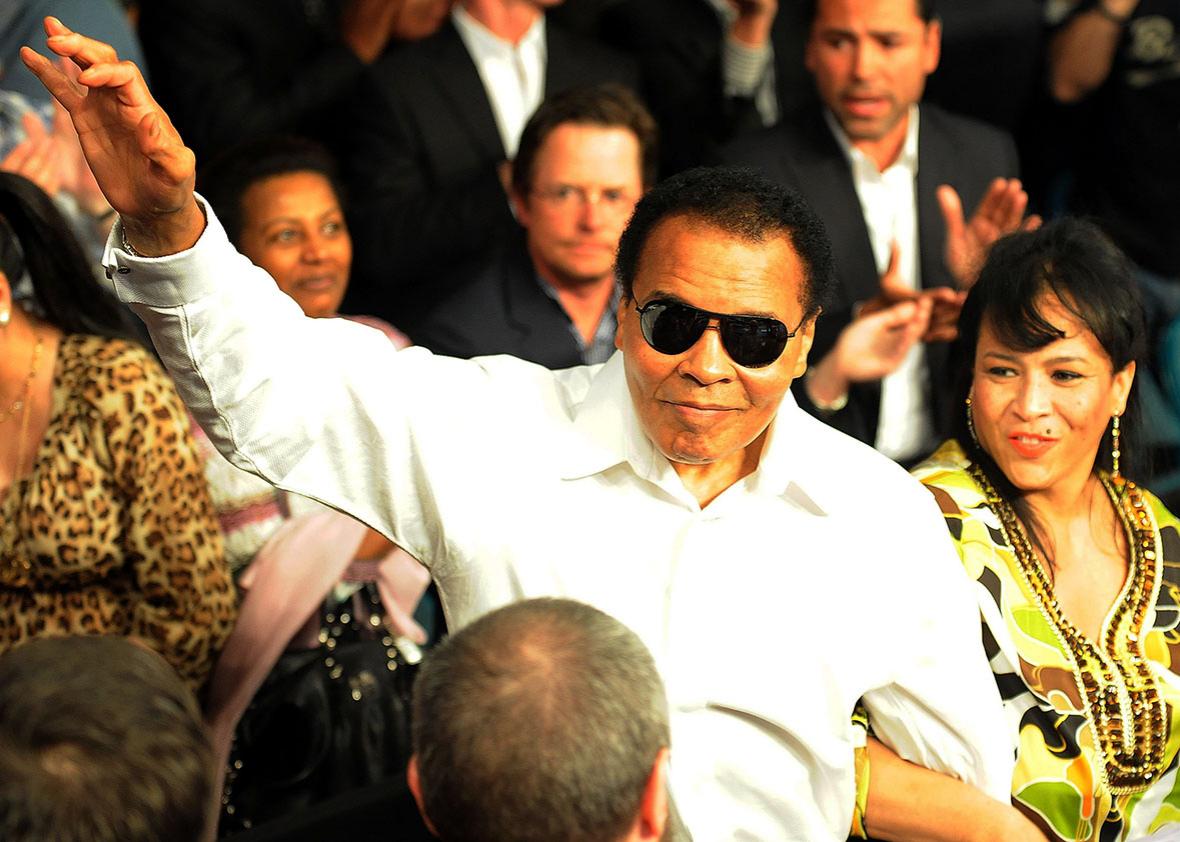The death of Muhammad Ali has been described by his family spokesman as “a very peaceful passing.” To a doctor’s ears, that’s code for “he wasn’t coded.” No chest compressions, no artificial breathing machines. After leading a most exceptional life, Ali’s dignified encounter with death makes him, in this doctor’s eyes, a champion yet again. Far too few of our sickest and most frail patients die with such dignity, surrounded by their caring families rather than a team of doctors and nurses pounding on a frail chest in vain attempts to restart a heart.
“Coding” a patient, health care–speak for advanced CPR techniques, is relatively easy to do but exceedingly hard to do well. And while there’s nothing more satisfying than bringing someone back who has a reversible cause of death (most commonly an otherwise healthy person with an abnormal heart rhythm requiring a life-saving defibrillating shock), there’s nothing more depressing than coding a person whose chance of survival is limited—and whose chance of healthy life is almost impossible.
We know that most patients over 75 years old with one of many serious underlying medical problems have less than a 10 percent chance of surviving CPR. For octogenarians living in nursing homes or other skilled care facilities with even moderate cognitive disabilities, those suffering from a stroke, metastatic cancer, major trauma, or septic shock (which Ali developed), the survival rate is less than 2 percent. By 85 years of age, such patients have less than a 1 percent chance of survival. The few that do survive often die on respirators after prolonged stays in intensive care units. Yet sadly, patients such as these frequently receive CPR, which, if the patient has any brain function, is about as painful a procedure as one can possibly imagine. It often saddens me that the last substance to enter a patient’s bloodstream is a heart stimulant rather than medication to ease pain and suffering.
Why do gravely sick patients with little hope of survival receive CPR so often? In my experience, patients and their loved ones have unrealistic expectations about CPR’s effectiveness. In fact, when chest compressions were first described in the medical literature, its innovators adeptly stated that CPR should be performed only on those whose deaths would be “sudden and unexpected.” They wisely advised, “the patient should not be in the terminal stages of a malignant or other chronic disease, and there should be some possibility to a functional existence.”
Unfortunately, since these sage words were published in the Journal of the American Medical Association in 1961, CPR has become the default when a patient’s heart stops beating. Because of this, the legal situation is that patients and families must explicitly opt out of CPR, rather than opt in to it. Too often, I see families grappling with this choice in the days, hours, minutes, and even seconds leading up to a loved one’s death. They appear wracked with guilt, as if forgoing CPR was somehow akin to “giving up.” It should be said that Muhammad Ali was not exactly the “giving up” type. So it should tell us something that he and his family, at some point, reckoned with the question of his death and concluded that quality of life, peace, comfort and dignity outweighed quantity of life.
One of the medical terms palliative care specialists—doctors and other providers who focus on relieving symptoms of diseases that cannot be cured—have worked hard to remove from the lingo is the phrase “doing everything.” When doctors ask families “would you like us to do everything?” they are usually attempting to ask whether the patient would want CPR if his or her heart were to stop beating. But to any devoted family, how can the answer to the question “should we do everything?” be anything but yes? The true question, then, is what does everything mean? For Muhammad Ali, everything was not engaging in a fight he could not win. Instead, it was being carried out of the ring in peace, in the protective arms of his loving and dedicated family.
Disclaimer: The opinions expressed in this article are solely those of the author and do not reflect the views and opinions of Brigham and Women’s Hospital.
